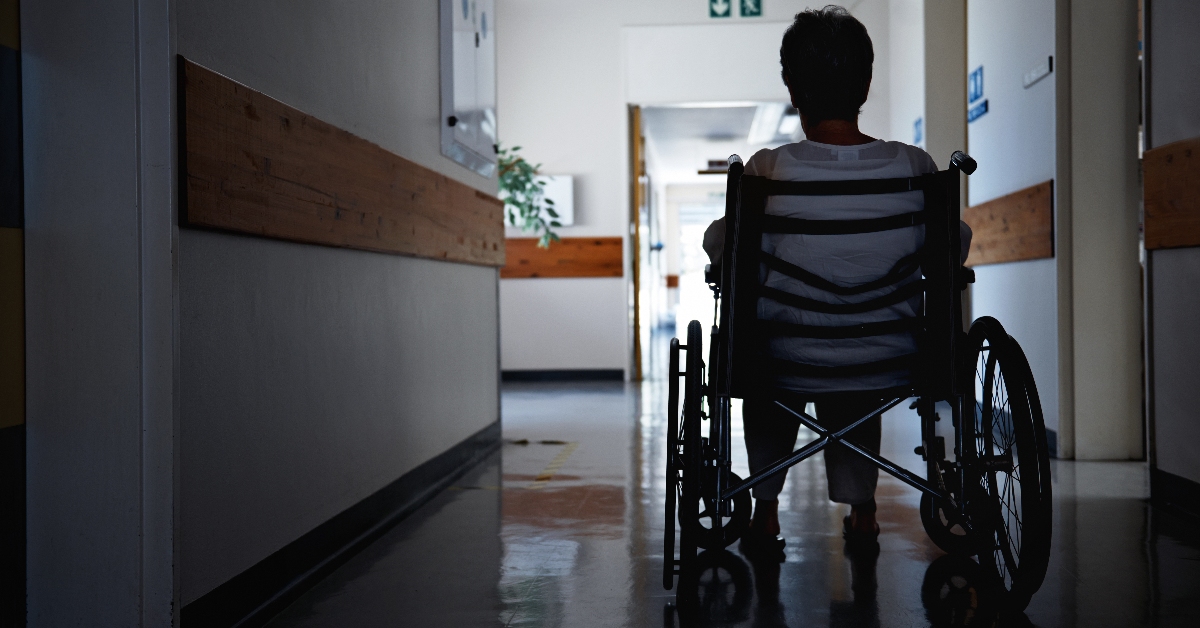Campaigners are calling for adults with learning disabilities to be given the right to live in their own home, in a community of their choice.
It comes after figures from Scottish Government revealed in 2019, more than one thousand adults with additional needs were sent to live outside of their council area due to a lack of available care.
Official figures show more than 1000 such adults were sent by Scottish local authorities to live “out of area”, meaning not in their home local authority area, in 2019.
“This is a scandal, and we may need to launch an action to ensure that we find out what happened to those people that were identified in that report and that we also place mechanisms now across the social care system to make sure that no one else finds himself in that situation,” Jan Savage, director of Enable Scotland, told STV News.
The charity has launched a #MyOwnFrontDoor campaign to give people with learning disabilities the right to a home they choose.
A report published in 2018 showed 67 people were living in hospital because no appropriate accommodation and support was available in their community – with 10% of them having been there for more than a decade.
The Scottish Government Coming Home report of 2018 said that more than 22% had been in hospital for more than a decade, and another 9% for five to 10 years.
Ms Savage said: “This is a human rights emergency. It is a national scandal – hidden in plain sight. People who have a learning disability – brothers, sisters, sons and daughters – are being forced to live far from home, to “live” in hospital, or to live in care settings where they are uncomfortable and unhappy.
“I am sure that people will be shocked to learn about the situation our fellow citizens find themselves in. But they should be reassured that better is possible.
“Clear and decisive action is now required to adopt a ‘Community First’ principle to end the practice of people being sent out of area; to nationally invest in high quality, consistent, specialist social care support to be available in every community; and to stop building new multi bed units for people who have a learning disability. These are not the solution – they perpetuate the problem.
“We cannot wait any longer. People who have learning disabilities are being subjected to a level of discrimination that we would not, and do not, expect other groups in our society to bear.”
A campaign report from the charity proposes five key steps it wants public bodies to take.
It includes closing all assessment and treatment unit beds and ending the practice of Scots being sent out of the country, maintaining a national “at-risk” register and ensuring that everyone identified on this has a plan by 2023 to come home to the community of their choice.
John Feehan, who has a learning disability and is an active member of Enable Scotland, said: “Some people think that people who have a learning disability are not able to live in local communities like everyone else.
“They think that that it is easier for them to be locked away in hospital, or to live with lots of other people who have a learning disability. That isn’t true. It is only because the right support is not there – it’s not the person’s fault.
“Anyone can live anywhere with the right support.”
Kevin Stewart, mental health and social care minister, said the Scottish Government is committed to ensuring that people with learning disabilities receive the best possible support and services.
He said: “We acknowledge that there are continuing challenges around people with learning disabilities and more complex care requirements who have spent an unacceptable amount of time in assessment and treatment units. Hospital is not a home.
“That is why in March 2020 the Health Secretary established, with Cosla, a working group to improve delayed discharge and reduce inappropriate out of area placements for people with learning disabilities and complex needs.
“In 2021 we provided over £20 million of funding to local health and social care services to significantly reduce out of area placements and hospital stays by 2024.”
Scottish Labour MSP Paul O’Kane said: “This sobering report must be a call to action.
“It is unacceptable that this practice is still so common, years after it was identified as a problem.
“Ensuring people can live and receive proper care in your own community is a basic demand – and it is shameful that it isn’t being met.”
Follow STV News on WhatsApp
Scan the QR code on your mobile device for all the latest news from around the country


 iStock
iStock
























